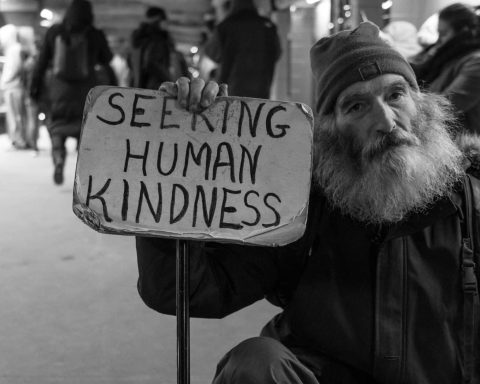 Julia Darko is a GP Specialty Trainee and Academic Clinical Fellow in General Practice at Kings College London.
Julia Darko is a GP Specialty Trainee and Academic Clinical Fellow in General Practice at Kings College London.
Recent global events have focused our attention on the many prejudices faced by Black men the world over. It beckons us all, whatever our modus operandi, to identify and seek to remedy injustices rooted in racial and ethnic bias.
In June 2020, the RCGP published a statement of solidarity acknowledging the enduring problem of structural racism and recognising the need for change in the form of tangible action.1 In this statement, the College commits to “highlighting and addressing poorer outcomes for BAME patients”. So, we must ask ourselves: what can General Practitioners actually do to improve the health outcomes of BAME patients? The considerations are manifold. However, we can start with one particular issue that is longstanding.
It is time to have a meaningful discussion … in order to better safeguard the… mental wellbeing of Black men.
Over several decades, evidence of disparities in the experiences of mental health care for Black men living in the United Kingdom has been extensively documented.2,3 Recent studies show minimal progress in achieving parity in mental health outcomes for this group compared to White patients. It is time to have a meaningful discussion in our primary care settings in order to better safeguard the mental healthcare and mental wellbeing of Black men.
The inequalities faced by Black men accessing mental health care in the UK
A Black man living in the UK and suffering from a mental illness will likely face specific challenges accessing professional help. For example:
Lived experience of racism, whether individual, structural, direct or indirect, can lead to a person existing in a state of constant threat….
1. Black men are more likely to be diagnosed with Severe Mental Illnesses such as schizophrenia and other psychotic disorders.4-6 More conservative studies have demonstrated that Black men are at least three times more likely to receive a diagnosis of psychotic illness compared to White men.5 While this disparity is well documented in the literature, underlying mechanisms continue to be poorly defined and understood. Regardless of how complex or multi-factorial the underlying aetiology might be, in the words of Nazroo, “It is worth emphasising that racism is the key issue here”.6 Lived experience of racism, whether individual, structural, direct or indirect, can lead to a person existing in a state of constant threat and increase their risk of psychotic illness.
2. Black men are significantly less likely to have general practitioner involvement in their diagnostic journey.4,5 As primary care doctors, our role is to oversee, manage and guide the patient towards appropriate specialist care. When this is absent from their care journey, we are failing to properly safeguard the needs of our patient in a holistic manner.
3. Black men are significantly more likely to be subjected to police involvement when mentally unwell, undoubtedly a manifestation of structural biases.4 It bears witness to a system where a particular individual is more likely to be treated as a criminal threat to society than a patient in need of care.
… a system where a particular individual is more likely to be treated as a criminal threat to society than a patient in need of care.
4. Black men are significantly more likely to be compulsorily detained under the Mental Health Act in order to receive treatment in secondary care inpatient settings.3,4,7 Studies over the years have reported the odds ratios as anywhere between three to thirteen times greater for Black men than for White men.4
5. Black men are less likely to be offered psychological therapy such as Cognitive Behaviour Therapy and family therapy.3,8 An unsurprising outcome given the evidence for a care trajectory at the harsher end of the spectrum of mental health services.
How should General Practice respond?
Through a study using photovoice methodology, Keating explored a cohort of Black men’s conversations about mental health and concludes that mental health services ought to engage with Black men differently.9 In addition to Keating’s recommendation, I would suggest that it is also time for broader primary care services, such as General Practice, to play a more active role in engaging Black men differently.
A recent editorial of the BGJP, describes the concept of relationship-based care as central to the future of effective general practice.10 This shift in focus, spearheaded by the RCGP, comes at a time where a pandemic has exposed the need for primary care to be increasingly characterised by “trust, mutual respect and the sharing of power”.10 In order to successfully foster this type of doctor-patient relationship it is imperative for GPs to be true advocates of all their patients’ wellbeing, particularly for those at risk of marginalisation. In the context of Black male mental health, GP advocacy should look like this:
… the need for primary care to be increasingly characterised by “trust, mutual respect and the sharing of power”.
1. Ensuring practices feel like safe spaces for Black men. GP surgeries must seek ways to actively create an environment where Black men are encouraged to feel like valued stakeholders by creating avenues for Black men of all ages to have meaningful input the structure and delivery of primary care services.
2. Acknowledging the effects of wider determinants of poor mental health, such as austerity and social isolation. GPs and allied professionals have a duty of care that goes beyond the biological. In order to promote and protect the psychosocial wellbeing of patients, GPs should engage with broader inequalities. In the first instance this could be simply verbally examining and acknowledging the lived experiences of patients as well as challenging the status quo of a system which threatens thoughtful and meaningful consultations.
3. Educating a workforce to better understand the deleterious consequences on health of structural racism and unconscious biases, in order to be better equipped to challenge these in ourselves and others.
4. Spending more time getting to know the patient community. GPs must have a firm grasp of their patients’ cultures and realities, as well as a deep knowledge of wider community networks. This is imperative to be able to offer appropriate and timely support when it is needed and prevent Black men facing mental distress as a result of presenting to health authorities in more alarming contexts.
… access to effective psychological services where Black men feel valued, cared for and listened to.
5. Demand, fund or facilitate access to effective psychological services where Black men feel valued, cared for and listened to, by ensuring Black male services users can have their input towards the shape and delivery of such services.
Whatever our vision for the future of General Practice and its role in tackling health inequalities, it is time for us to respond to this enduring mental health inequality through more decisive and committed action.
References
1. RCGP. Statement of solidarity and support for BAME colleagues and communities. June 2020. https://www.rcgp.org.uk/about-us/news/2020/june/statement-of-solidarity-and-support-for-bame-colleagues-and-communities.aspx.
2. Bhui K, Stansfeld S, Hull S et al. Ethnic variations in pathways to and use of specialist mental health services in the UK Systematic review. Br J Psychiatry. 2003; 182(2):105–116.
3. Cabinet Office. Race Disparity Audit. 2017.London: Cabinet Office.
4. Halvrsrud K, Nazroo J, Otis M et al. Ethnic inequalities in the incidence of diagnosis of severe mental illness in England: a systematic review and new meta‑analyses for non‑affective and affective psychoses. Soc Psychiatry Psychiatr Epidemiol. 2019; 54:1311–1323.
5. Morgan C, Mallett R, Hutchinson G et al. Pathways to care and ethnicity. 2: source of referral and help-seeking. Report from the AESOP study. Br J Psychiatry. 2005; 186: 290–296.
6. Nazroo J. Ethnic inequalities in severe mental disorders: where is the harm? Soc Psychiatry Psychiatr Epidemiol. 2015; 50:1065-1067.
7. Oduola S, Craig T, Das-Munshi J et al. Compulsory admission at first presentation to services for psychosis: does ethnicity still matter? Findings from two population-based studies of first episode psychosis. Soc Psychiatry Psychiatr Epidemiol. 2019; 54: 871-881.
8. Das-Munshi J, Bhugra D, Crawford MJ. Ethnic minority inequalities in access to treatments for schizophrenia and schizoaffective disorders: findings from a nationally representative cross-sectional study. BMC Med. 2018; 16 (1): 55.
9. Keating F. Black men’s conversations about mental health through photos. Qual Soc Work. 2020; 0(0): 1-18.
10. Jones R. General practice in the years ahead: relationships will matter more than ever. Br J Gen Pract. 2021; 71 (702):4-5.
Featured photo by Rui Silvestre on Unsplash






